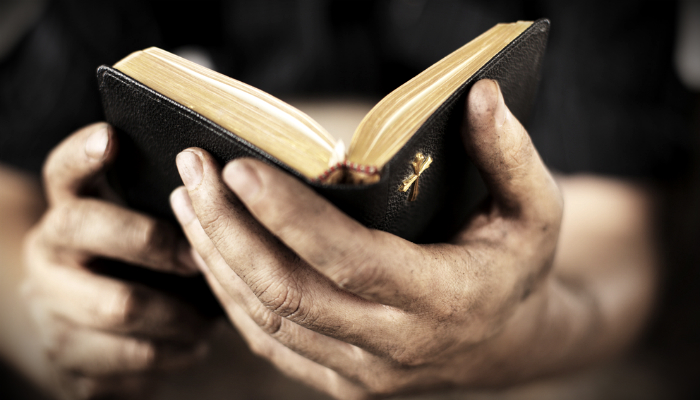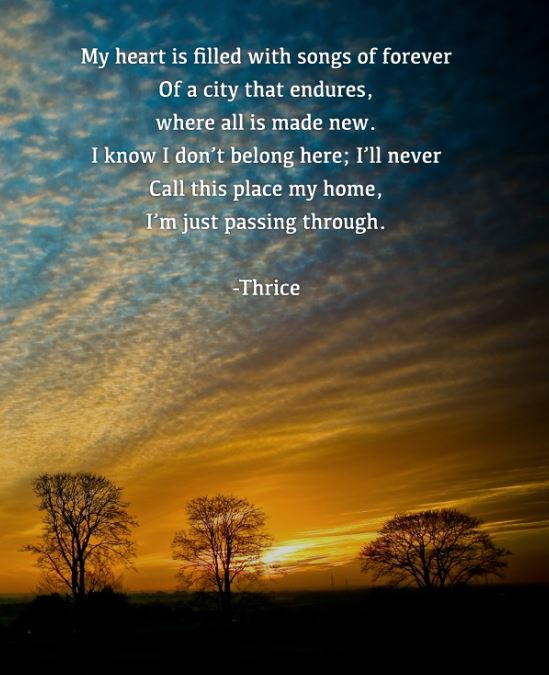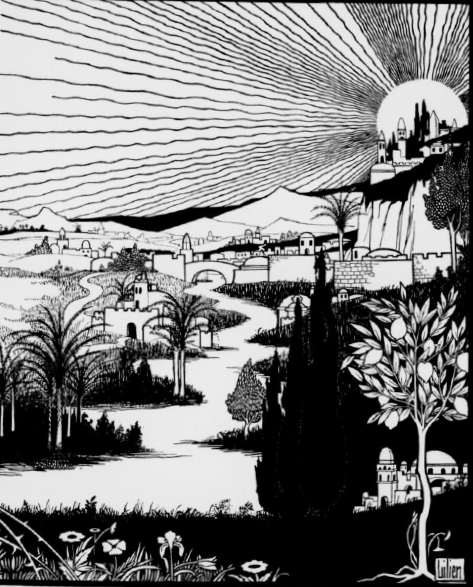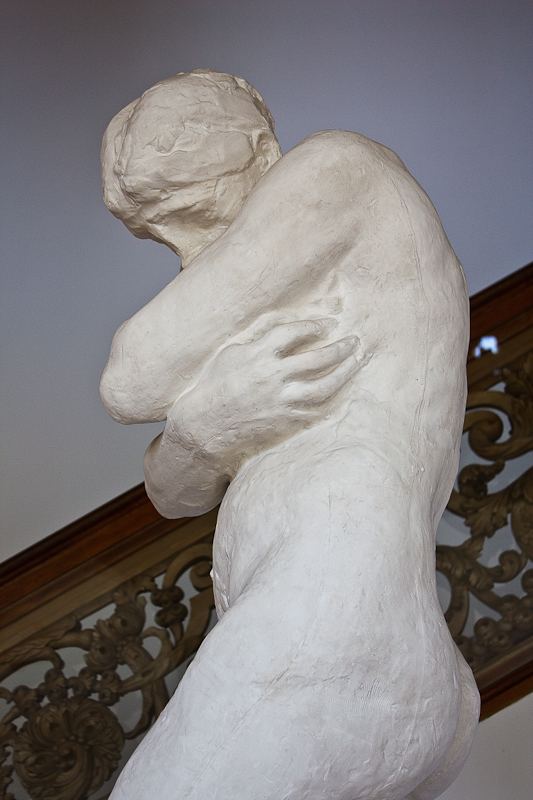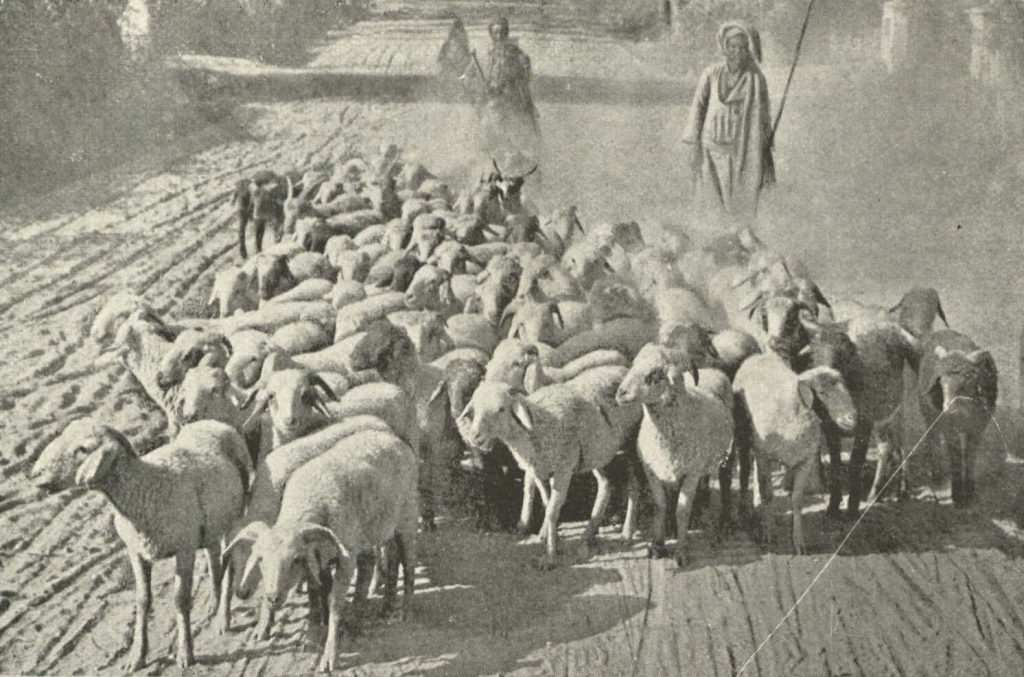This is part of the General Conference Odyssey.
It’s been a long time since I’ve participated in the General Conference Odyssey, but I’ve decided to repent and attempt to get back in the habit. So what offerings do we have from April 1976 Saturday afternoon session? We have Boyd K. Packer’s famous “Spiritual Crocodiles” talk, which has likely been drilled into the head of every seminary student (or maybe just every seminary teacher’s kid) thanks to the CES video from the 1990s. We have the newly-called Elder Haight dismissing (unintentionally, I imagine) the missionary folklore that all modern apostles have seen Jesus: “I have not seen, but I know. I have always known, but now I have received a greater assurance and pray that I will always know that this is the gospel of the Lord Jesus Christ, that it has been restored in our day, that God is a reality” (italics mine). Instead, he emphasizes personal revelation: “I pray the divine spark will develop into a firm knowledge and conviction in all of us, and that through personal revelation we will know that Jesus is the son of the living God, that President Kimball is the only man on earth who holds and exercises in righteousness the keys of the kingdom and is the mouthpiece of God on earth.”
This emphasis seems to be further solidified by the following talk by S. Dilworth Young on “the still small voice.” What I find interesting in most discussions of revelation that employ D&C 9:8-9 as a model is that “study it out in your mind” is either glossed over (as is the case with Young’s talk) or given bare minimum attention. I’m reminded of an MTA presentation by independent historian Don Bradley in which he states,
Perhaps our approaches to the spiritual and temporal should reciprocally inform each other. Maybe instead of just transferring the simplicity with which we often approach spiritual problems to deal with temporal problems, we should transfer some of the complexity and rigor we’ve developed in dealing with temporal problems to how we engage spiritual problems. In temporal problem-solving we take for granted that we might need to learn methods and practice, practice, practice in order to hone skills. Yet, in spiritual problem-solving we seem to expect that God will do all the work except for the nominal “studying out” the problem in our mind, after which God is obligated to give us the right answer…We expect that calculus will be hard, but that gaining revelation from God Almighty will be easy. One implication of the intimate relationship of temporal and spiritual is that lessons learned in our temporal lives may have relevance for how we pursue our spiritual lives.
As for John H. Vandenberg, he dropped a nice quotable slogan: “A true principle discovered, properly applied, brings a correct result.” This followed an interesting story that could’ve been a case study by experimental psychologists like Dan Ariely. Readers of Theodore Burton’s talk on the Word of Wisdom would be better off reading some of the scholarship and historical research on the subject.
Now on to the good stuff by Elder Maxwell.

I love the way Elder Maxwell speaks. Even though the topic isn’t anything new, he packs it with so many choice words and qualifying phrases that convey a deeper understanding of both the gospel and the world at large. The implications behind his words are powerful, at least to me. Here are a few highlights from what would otherwise be a run-of-the-mill chronological testimony of Jesus Christ:
- Thus, foolishness, fear, and fashion have flattened the theology of many. For them, there is neither shelter nor landmark on the horizon: In 1972, the book Why Conservative Churches are Growing was published, arguing that theologically conservative churches were on the rise. Even recent research confirms this. Sociologist Rodney Stark blames the shift from mainline Protestant Mainline denominations to more conservative ones on “clergy disbelief in the essentials of Christianity, and their faith in radical politics.”[ref]Stark, The Triumph of Faith: Why the World Is More Religious Than Ever (Wilmington, DL: ISI Books, 2015), 196.[/ref]
- This testimony involves my reason and my experience—the two limited but helping witnesses! Happily, there has been given to me the third witness of the Spirit—the unimpeachable and convincing witness! My only regret is that what follows is apt to be the verbal equivalent of a child’s enthusiastic finger painting—because my tongue cannot tell all I know: I’m not sure I would separate the Spirit from personal experience considering that the witness of the Spirit is an experience,[ref]Richard Swinburne has relied on “the principle of credulity” when it comes to religious experiences, while Alvin Plantinga has argued that belief in God can be properly basic.[/ref] but the point still stands: reason and lived experience should be coupled with–and enhanced by–the promptings of the Spirit. Our intellect should be refined by the Spirit, while our reason and experience should open wider channels of revelation.
- He helped to prepare this planet for us and led—not pushed—us from our premortal post: Loving relationships are freely chosen. This is likely why Maxwell later states that Christ “reflected both an astonishing selflessness and a breathtaking commitment to freedom as a condition of our genuine growth” in the premortal realms. Or “his discerning way of knowing us without controlling us[.]”
- I thank him, further, for not deserting those of us who are slow or stragglers: The Lord doesn’t leave you behind when you drag your feet and when shouldn’t leave others behind either.
- I testify that he assisted in the creation and management not only of this planet, but other worlds. His grasp is galactic, yet he noticed the widow casting in her mite: Jesus as manager. Makes my heart sing. Stanford’s Robert Sutton has noted, ““Big picture only” leaders often make decisions without considering the constraints that affect the cost and time required to implement them, and even when evidence begins mounting that it is impossible or unwise to implement their grand ideas, they often choose to push forward anyway…[T]he worst senior executives use the distinction between leadership and management as an excuse to avoid the details they really have to master to see the big picture and select the right strategies. Therefore…let me propose a corollary: To do the right thing, a leader needs to understand what it takes to do things right, and to make sure they actually get done.” This is why Christ was “the Perfect Example and Leader,” according to Maxwell, “not asking us to do what he has not done, not asking us to endure what he has not endured.” His led by “divinely demonstrating directions—not just pointing.”
- He who did not need to die himself was willing to be bound by the chains of death so he could break them for all mankind: I think we sometimes forget the victory and liberation of Christ’s resurrection.
- I thank him for likewise not interceding on our behalf, even when we pray in faith and reasonable righteousness, for that which would not be right for us: We’re getting into problem of evil territory, but I think there is definitely room for prayers going unanswered because the request isn’t in our best interest eternally speaking.
- …that program of progress—repentance, which beckons us to betterness: Repentance is so often seen as self-flagellation. But to see it as incremental progress is life-altering. It is a recognition that some things which are “known” are “beyond the border of [our] behavior[.]” And yet, Christ helps us “to advance that border, bit by bit. His relentless redemptiveness exceeds [our] recurring wrongs.”
- …rising above his beginnings without renouncing them: This cuts to the heart of the shame too often associated with poverty. There is sometimes an embarrassment of one’s origins. But Jesus shows that one does not have to be ashamed of her background, her home life. One can rise above her original circumstances, but still recognize them as part of her story and identity.
- I thank him for such repeated reachings out to mankind, whether in phenomenal power or in quiet conversation at a wellside: The ways for God to communicate are vast and multifaceted. I have no doubt that he can customize it for each and everyone of us.
So ends his “anthem of appreciation” for the Savior.
And that’s why I love Elder Maxwell.
 A couple months ago, I gave a talk on “
A couple months ago, I gave a talk on “

